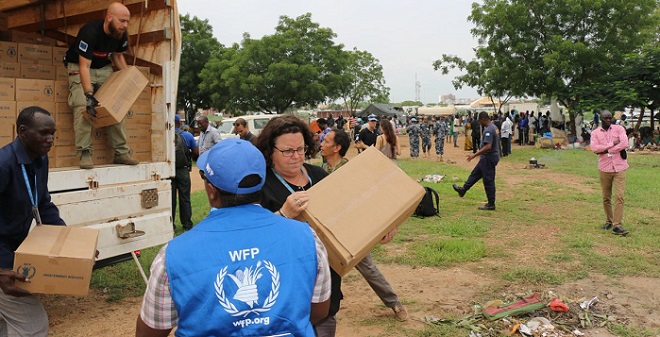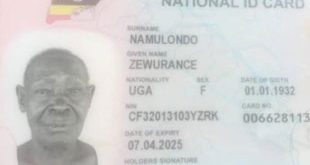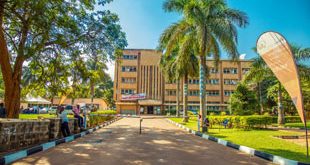
According to the study, assistance given to refugees produces an “income multiplier” effect for host communities. For instance, when WFP provided cash assistance, each dollar increased real income in and around the settlements by between $1 and $1.50. When food was provided to refugees in kind, the corresponding increase was $1.30.
Prof. Edward Taylor, the study’s lead researcher explained that when a refugee household receives cash fromWFP for a year, the annual income in the Ugandan economy increases by $1,100 (Approx. Shs3.9 million). The income increase is $850 (Approx. Shs3 million) when the assistance is given as food rations. That is a difference of about 30% in the multipliers effect in favour of cash assistance which is quite significant.
These numbers include the income impacts on host-country as well as refugee households. But the host-country households benefit most from income spillovers.
The average increase was seen in both camps surveyed although the cash aid multiplier effect on local incomes was higher in the Rwamwanja settlement than in the Adjumani settlement.
According to the study, refugees without land also significantly increase real (inflation-adjusted) income in the local economy when they are given cash instead of rations. This is because the income easily exceeds the cost of WFP food aid.
The study also found that the cost of distributing cash is lower than the cost of delivering food aid.
Land stimulates production
A unique feature of Uganda’s refugee support policy is that refugees are allotted homestead land upon registering in the settlement.
In addition, some settlements like Rwamwanja are able to provide cultivatable land for agricultural activities. Jaakko Valli, co-researcher and WFP’s refugee programme manager in Uganda, said there were considerable economic benefits from the intense farming carried out by refugees on land provided by the Uganda government for their resettlement. While they are not necessarily more efficient than their Ugandan neighbours, Valli said, refugees realise higher yields because they invest considerably more labour.
Like host-community farmers, refugees create income spillovers when they hire agricultural labour from other households and purchase agricultural inputs from local businesses. The refugees also contribute to local food supplies by selling some of their crop harvest. The researchers found that refugees farm their land intensively and as a result, output per acre is significantly higher for refugees than for host-country farmers around the two settlements.
“But, this does not mean that refugees are more efficient than host-country farmers,” says the report. The researchers actually found the evidence they gathered pointed to the contrary.
However, refugees devote considerably more labour to their plots than host country farms do, and this results in larger harvests per each unit of land.
The refugee farmers also contribute to the local food supply and potentially influence food prices because the food refugees produce is either consumed within the household or sold to other refugees and the host community.
Pecos Kulihoshi Musikami, a Congolese refugee who has been living in Uganda for close to 25 years, says the study confirms what they have been advocating for, for some time.
According to Musikami who now heads the Foundation of People for Peace and Defence of Human Rights, a Kampala-based refugee-founded non-profit working for the promotion of peace and human rights in the Great Lakes region, there are more benefits to refugee hosting communities if “a little more money goes into the pockets of refugees”.
He says refugees can then use the money to either buy food or even start income generating activities wherever they live. Musikami says they have always argued that Uganda has enough food which can be used to feed all refugees and that the money that is sometimes used to buy food from other countries could instead be used to buy the same food from local farmers, a move that could go a long way in helping both refugees’ needs for nutrition but also combat poverty among the local farming communities.
UNHCR,WFP respond
In what can be seen as a reaction to the study, UNHCR recently announced a plan to double cash-based assistance for refugees with effect from 2017 and double it again by 2020. Filippo Grandi, the UNHCR boss said Oct.31 that the UN agency he leads would introduce and expand cash-based assistance to vulnerable refugees and people in need of help in Niger, Kenya, DR Congo, Rwanda, Somalia, Sudan, Ethiopia, Uganda, Afghanistan and Iran.
“The use of cash-based assistance has been a real game changer in the way we help refugees and we have now decided to make it a worldwide policy and expand it to all our operations, where feasible,” Grandi said in a statement.
Lydia Wamala, the Communications Officer at the WFP Country Office in Kampala told The Independent on Nov. 4 that WFP is planning to gradually expand cash transfers by doubling beneficiaries by March 2017 from the current 100,000.
Wamala said the UN agency is constantly making efforts to build evidence of the impact of its work and the recent study will help WFP’s partners; including the government, to understand the impacts of their work and therefore take action to maximize any proven benefits including positive economic impacts.
****
editor@independent.co.ug
 The Independent Uganda: You get the Truth we Pay the Price
The Independent Uganda: You get the Truth we Pay the Price


